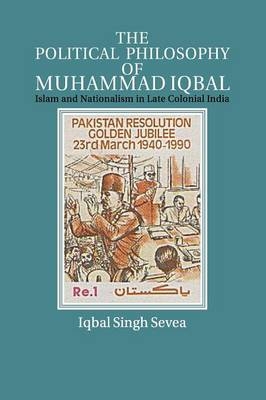
The Political Philosophy of Muhammad Iqbal
Islam and Nationalism in Late Colonial India
Seiten
2017
Cambridge University Press (Verlag)
978-1-316-63370-0 (ISBN)
Cambridge University Press (Verlag)
978-1-316-63370-0 (ISBN)
Enjoyable story-based practice for the Cambridge Young Learners English (YLE) Tests.
This book reflects upon the political philosophy of Muhammad Iqbal, a towering intellectual figure in South Asian history, revered by many for his poetry and his thought. He lived in India in the twilight years of the British Empire and, apart from a short but significant period studying in the West, he remained in Punjab until his death in 1938. The book studies Iqbal's critique of nationalist ideology and his attempts to chart a path for the development of the 'nation' by liberating it from the centralizing and homogenizing tendencies of the modern state structure. Iqbal frequently clashed with his contemporaries over his view of nationalism as 'the greatest enemy of Islam'. He constructed his own particular interpretation of Islam - forged through an interaction with Muslim thinkers and Western intellectual traditions - that was ahead of its time, and since his death both modernists and Islamists have continued to champion his legacy.
This book reflects upon the political philosophy of Muhammad Iqbal, a towering intellectual figure in South Asian history, revered by many for his poetry and his thought. He lived in India in the twilight years of the British Empire and, apart from a short but significant period studying in the West, he remained in Punjab until his death in 1938. The book studies Iqbal's critique of nationalist ideology and his attempts to chart a path for the development of the 'nation' by liberating it from the centralizing and homogenizing tendencies of the modern state structure. Iqbal frequently clashed with his contemporaries over his view of nationalism as 'the greatest enemy of Islam'. He constructed his own particular interpretation of Islam - forged through an interaction with Muslim thinkers and Western intellectual traditions - that was ahead of its time, and since his death both modernists and Islamists have continued to champion his legacy.
Iqbal Singh Sevea is Assistant Professor of History at the University of North Carolina, Chapel Hill.
Introduction; 1. Muslim political discourse c.1857–1940; 2. 'Mera Payam Aur Hai': Iqbal's roles as an intellectual and poet; 3. Reconstruction of Islam; 4. Rejecting nationalism, relocating the nation; 5. Development of the nation; Conclusion.
| Erscheinungsdatum | 25.01.2017 |
|---|---|
| Zusatzinfo | 1 Maps |
| Verlagsort | Cambridge |
| Sprache | englisch |
| Maße | 154 x 230 mm |
| Gewicht | 370 g |
| Themenwelt | Schulbuch / Wörterbuch ► Wörterbuch / Fremdsprachen |
| Geschichte ► Allgemeine Geschichte ► Neuzeit (bis 1918) | |
| Geisteswissenschaften ► Geschichte ► Regional- / Ländergeschichte | |
| Geschichte ► Teilgebiete der Geschichte ► Wirtschaftsgeschichte | |
| Geisteswissenschaften ► Philosophie ► Östliche Philosophie | |
| Geisteswissenschaften ► Religion / Theologie ► Islam | |
| Sozialwissenschaften ► Politik / Verwaltung ► Politische Systeme | |
| Sozialwissenschaften ► Soziologie | |
| ISBN-10 | 1-316-63370-5 / 1316633705 |
| ISBN-13 | 978-1-316-63370-0 / 9781316633700 |
| Zustand | Neuware |
| Haben Sie eine Frage zum Produkt? |
Mehr entdecken
aus dem Bereich
aus dem Bereich
Europa 1848/49 und der Kampf für eine neue Welt
Buch | Hardcover (2023)
DVA (Verlag)
CHF 67,20
Giordano Bruno - ein ketzerisches Leben
Buch | Hardcover (2024)
C.H.Beck (Verlag)
CHF 41,85


